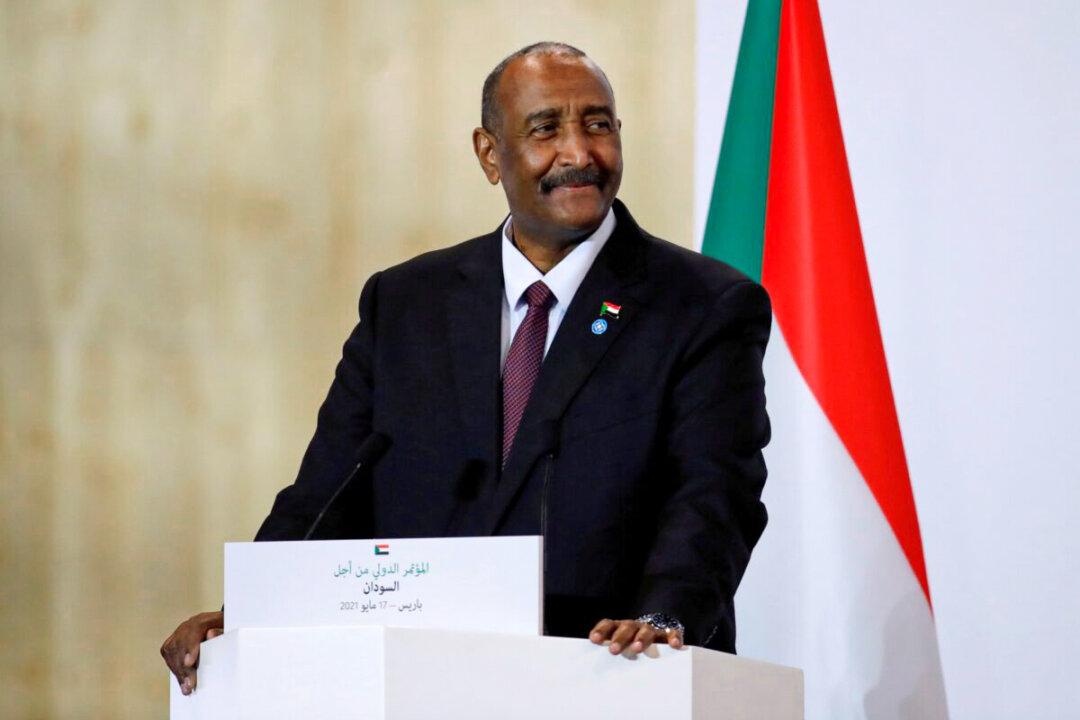KHARTOUM—Sudan’s military will exit politics after elections scheduled for 2023, General Abdel Fattah al-Burhan told Reuters in an interview on Saturday, adding that the deposed former ruling party would have no role in the transition.
Following a military takeover led by Burhan in late October that upended Sudan’s transition to civilian-led democracy, a deal was struck on Nov. 21 reinstating Prime Minister Abdalla Hamdok to lead a technocratic Cabinet until elections in July 2023.





